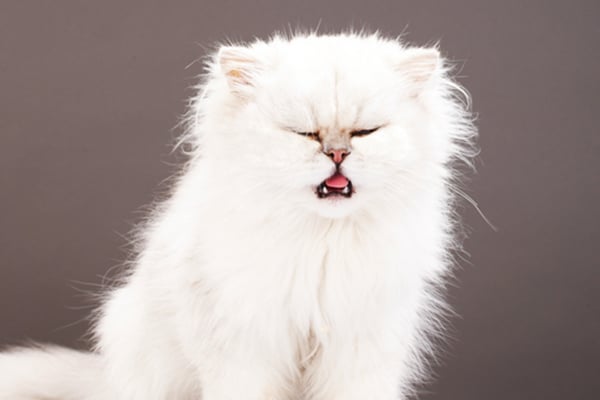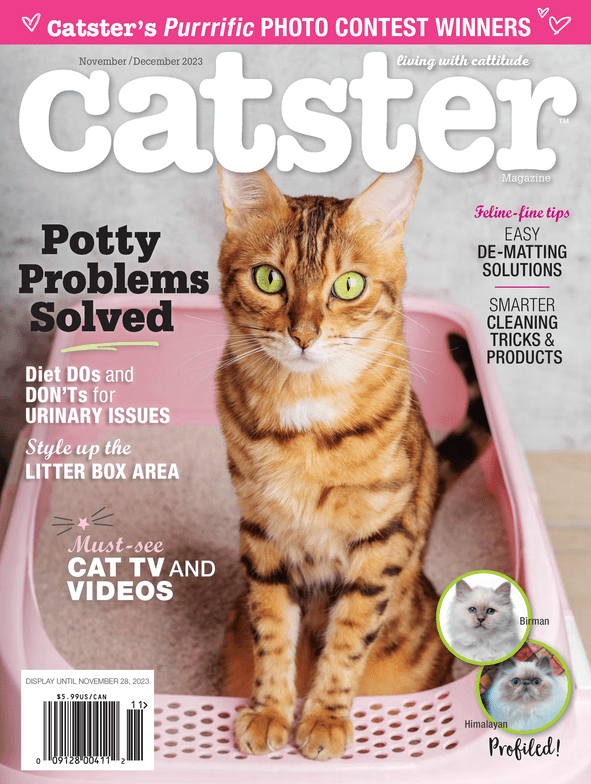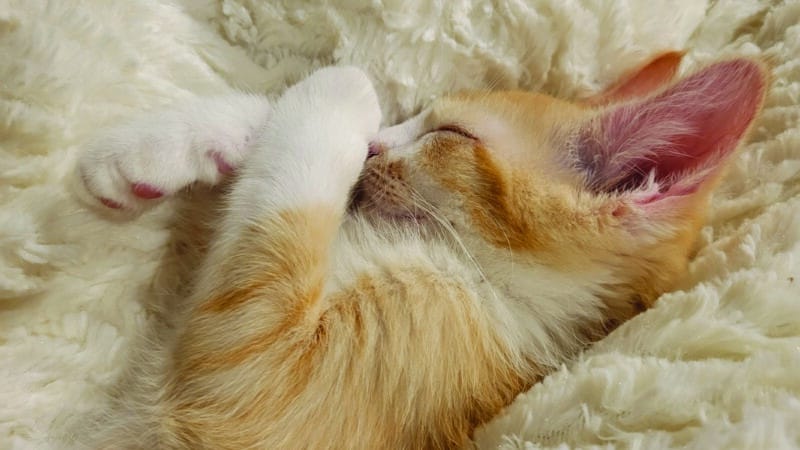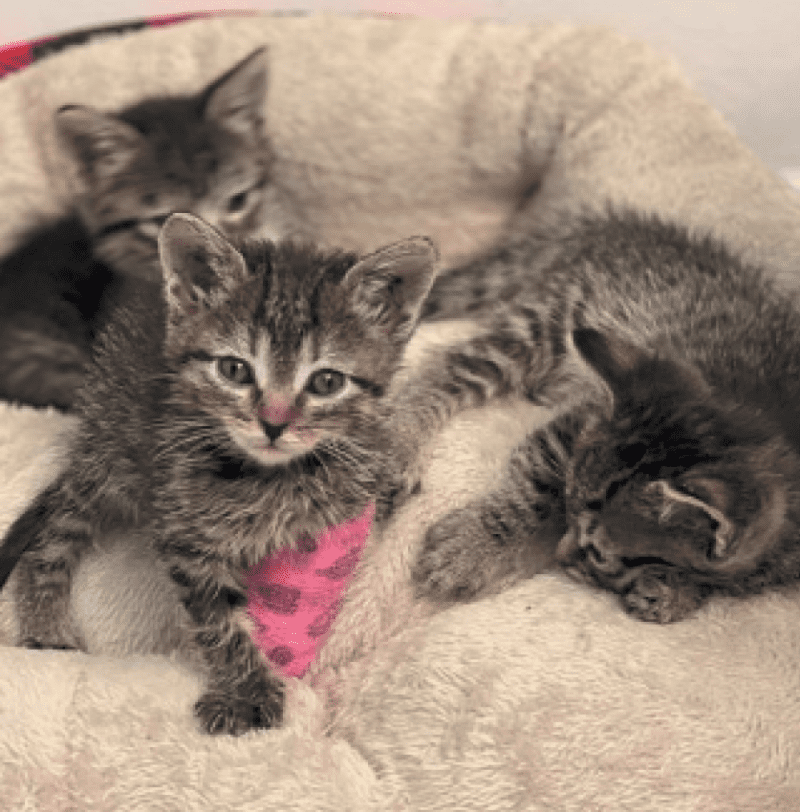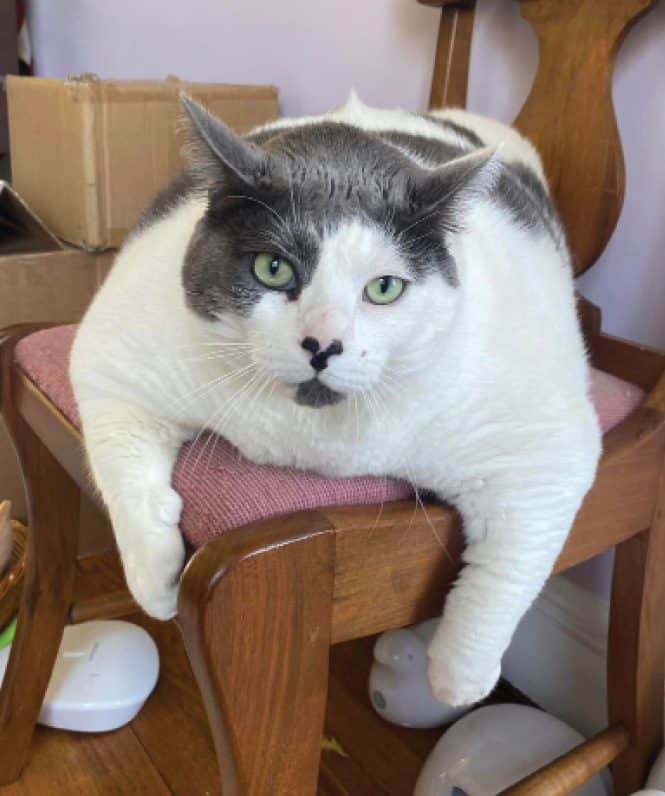Have you ever witnessed your cat hiccuping? Yep, you read that correctly: Not sneezing or chirping or any of the other range of entertaining noises felines make, but actually hiccuping? Let’s look at why cat hiccups happen and when to worry — and when to just laugh.
Cat Hiccups in Action
First up, if you’ve not witnessed the phenomenon of cat hiccups, check out this video to see what all the hullabaloo is about. As you can see, it kind of looks like the feline is on the verge of spewing up a hairball — but instead there’s just a series of tiny hiccuping motions.
The Science Behind Cat Hiccups
From a veterinarian point of view, a cat hiccups when her diaphragm decides to contract at exactly the same time as the part of her larynx that houses the vocal chords closes. Sometimes this happens due to nerve irritation issues, and other times it’s a consequence of chowing down too quickly on food and ingesting air at the same time. (Fun factoid: In humans, this can also cause acid reflux.)
Hang On, What About Hairballs?
Oh, I should add that the scourge of the feline that is a hairball can also actually cause a cat to hiccup. This takes place when the cat’s throat tries in vain to expel or move the fur that’s accumulated, but instead irritates things and prompts a hiccup.
Are Hiccups Related to Feline Farting?
Despite the popularity of this video, which shows a somewhat portly cat slouched down and emitting noises from both the mouth and butt, there is no conclusive scientific evidence to suggest cat hiccuping and feline farting are in any way related. So, let’s move along.
How Concerned Should I Be About Cat Hiccuping?
If your cat suffers from sporadic, small bouts of hiccups, you’ve probably got nothing to be overly concerned about. In fact, she’s probably just feasting on her food too quickly. But if your cat seems to be hiccuping for longer than a day at a time, it’s probably time to consult a vet as there could be larger ailments and issues at play. Feline asthma is one such concern, as is heart disease or icky parasites. Oh, and there could even be a food allergy at work. Yes, with cats it’s so often always about the food.
What Can I Do About Cat Hiccups?
First up, don’t stress your cat out if she’s hiccuping. Keep things calm and give her some space.
Next, do a quick survey of your cat’s food. Does she scarf it down way too quickly? If so, try serving smaller portions throughout the day. Also, ensure that she always has access to water — and is actually drinking it. If you’re cohabiting with one of those kitties who refuse to drink settled water out of her bowl, look into picking up a cheap water fountain — sometimes our finicky friends prefer cascading water. Because, you know, it obviously tastes so different.
Also, if hairballs do seem to be tied to any hiccuping action, ask a vet for recommendations to control the condition.
Can I Use Human Remedies for Cat Hiccuping?
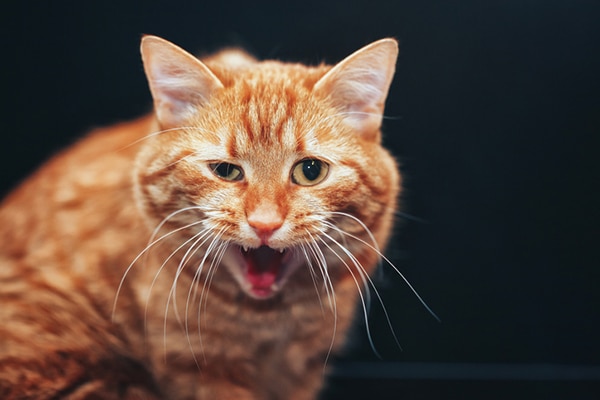
Finally, let the record show that the age-old remedies to cure human hiccuping should probably not be used on cats. That includes scaring your feline witless, attempting to get her to hold her breath (good luck with that one) and the bartender’s trick of biting into a lemon doused in Angostura bitters. Seriously, the last one genuinely works — for humans.
Tell us: Has your cat ever had hiccups? What caused them? What did you do?
Thumbnail: Photography by Martin Poole/Thinkstock.
Read more about cat sounds on Catster.com:

